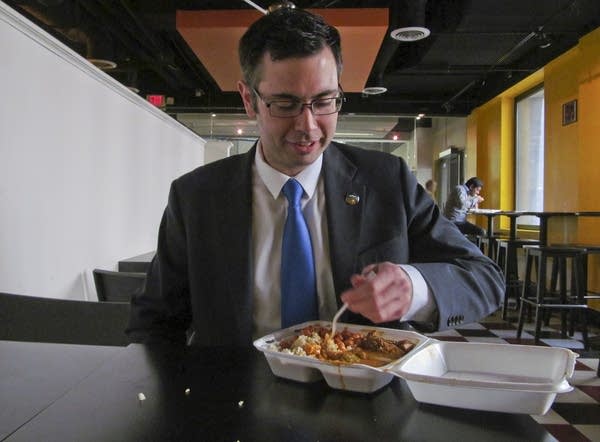Some plastic food containers could be banned in Minneapolis

First-term Minneapolis City Council Member Andrew Johnson eats Indian food out of a container he hopes to ban. It's made of polystyrene foam, which is difficult to recycle.
Curtis Gilbert / MPR News
Go Deeper.
Create an account or log in to save stories.
Like this?
Thanks for liking this story! We have added it to a list of your favorite stories.


